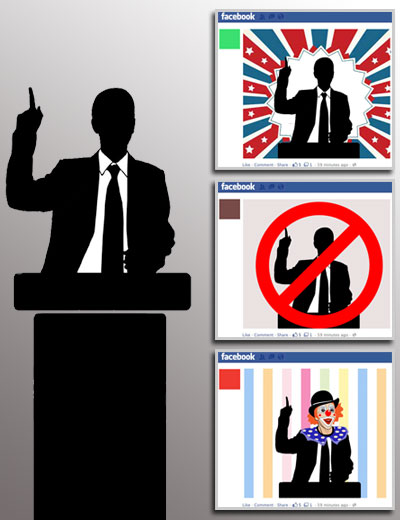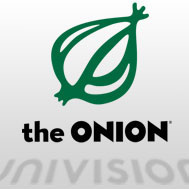
Irony in a Post-ironic World: Combating Culturally Constructed Ignorance With Satire
Today many people conflate the ideas of satire and comedy. But satire is a far more potent and, in many ways, essential voice for our culture. Satire is a weapon of social change, using sarcasm, ridicule or irony to make a point that is sometimes difficult or even impossible to voice in other contexts. By definition, effective satire challenges power structures, be they political, social or cultural, in a way that is generally offensive (by design) to the subject being satirized. It's no surprise then that satire as a genre tends to come under attack when faced with conflicts/stress points that test the limits of a society.
Most recently we've seen this in the backlash against the French satirical publication Charlie Hebdo, which came under terrorist attack in January 2015 resulting in 11 dead. Even as many people around the world proclaimed "je suis Charlie" in solidarity, others declared that the magazine may have brought the tragedy upon itself, by publishing inflammatory material for the sake of increased readership. Likewise, following the 9/11 attacks, most American satirical outlets stumbled or went silent. Some pundits declared the era of irony and sarcasm to be over, until the Onion published its now-famous issue two weeks later (an issue that led to the Onion being nominated for a Pulitzer Prize).
The Paris and 9/11 attacks had broad social impacts. It's to be expected that the nature and "appropriate" use of satire would come under fire following such events. However it's also expected that from time to time people in power would seek to rein in or respond to their critics. It's been pointed out that people in power wouldn't bother to try and ban or suppress satire if it wasn't an effective tool of social change; and indeed, rulers from Queen Elizabeth the First to Silvio Berlusconi have tried in vain to limit satirical discourse they deemed dangerous to their regimes. But today such responses are becoming increasingly unnecessary, in part because satire is losing its ability to reach a broader audience.
Make no mistake: there is a role for parodic discourse that preaches to the choir. Jon Stewart's tenure at The Daily Show proved that satire can be both cathartic and inspiring, and TDS viewership has always been largely confined to an audience already sympathetic to Stewart's views. But there is also a role for satire that reaches beyond people's comfort zones, for humorous commentary that strikes a chord with people who didn't know they had a chord within them. Despite the ever-expanding horizon of multimedia information available to us today, people's views are becoming narrower and narrower as the increasingly responsive digital platforms we engage with provide us with what we want to hear, in an ever-constricting feedback loop that confines our view and populates our social media world with information that reinforces our existing biases, rather than challenges us.
The siloing phenomenon has been studied by social scientists who, in an article in the Proceedings of the National Academy of Sciences earlier this year, found after studying four years of Facebook data that users tend to aggregate in communities which tell them that their beliefs and attitudes are correct. "Our findings show that users mostly tend to select and share content related to a specific narrative," said the authors, "and ignore the rest."
This phenomenon has been willingly seized upon by organizations (corporate and political) with a vested interest in casting doubt upon the status quo. Stanford historian of science Robert Proctor coined the term "agnotology" to describe what he calls "culturally constructed ignorance," the phenomenon of special interests working hard not just to spread misinformation, but to make many issues so confusing that "people stop caring about what's true and what's not." It's a threat so serious that the World Economic Forum has decided that unreliable information going viral is a significant social threat.
Perhaps no public figure today embodies this principle better than presumptive Republican presidential nominee Donald Trump. Although Trump bears a withering daily deluge of parody and scornful satire, none of it seems to stick. This is partly due to his own outlandish approach to campaigning – how can a satirist possibly exaggerate what Trump might say or do? The most absurd reductio ad absurdum a satirist can construct seems plausible in the face of a candidate who lies up to three-quarters of the time, or who can change his stated opinion on hot-button issues such as abortion five times in three days. True, Trump does aggressively seek to restrict media access and control his image, but these efforts are driven more by ego than practical concerns: Trump is more likely to ban a columnist from his campaign for mentioning the size of his hands than any policy inconsistency. He has taken away the power of exaggeration from satirists, robbing them of their most effective weapon.
Worse, even the best satire today is likely not falling upon the right ears. The odds that an incisive satirical article or essay will strike a chord across a broad swath of society are minimal. Relegated to self-selecting digital communities of people already predisposed to agree with the writer, and fighting for attention with flurries of deliberate misinformation and hoaxes, satire today has a much harder time being heard.
Should satirists hang up their keyboards? Of course not. Satire plays a vital role in highlighting the absurd. The fact that today's policymakers often don't bother to downplay the absurdity or inconsistencies of their platforms does not render them any less worthy of ridicule. It makes the satirist's job harder – but then, few people pick up their pens because it's easy work.




